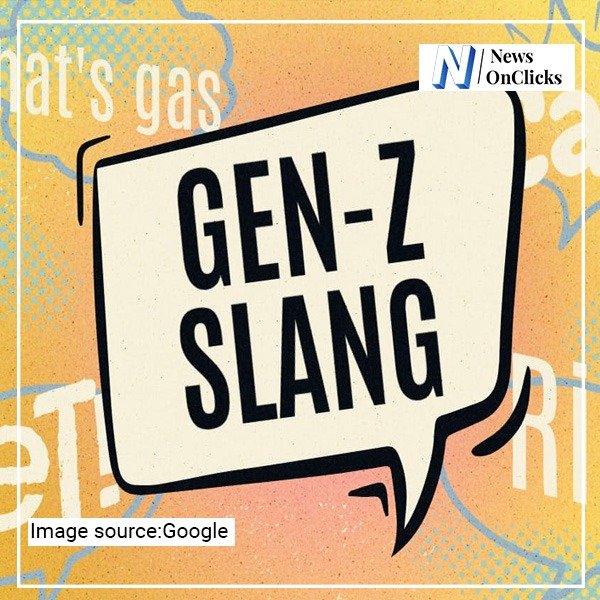
Gen-Z, the generation born between the early 1990s and early 2000s, is known for its distinctive way of communicating. With technology ingrained in their everyday lives, they’ve crafted an entirely new language that leaves many older generations puzzled. This article delves into some of the most popular Gen-Z slang terms, offering insights into their meanings and how they’re used in daily conversations.
What Is Gen-Z Slang?
Gen-Z slang refers to the creative language and expressions developed by the generation that has grown up with the internet and social media. This unique vernacular is heavily influenced by platforms like TikTok, Twitter, and Instagram. The slang can often sound like an entirely different language to those unfamiliar with it. For Gen-Z, these terms serve not only as a way to communicate but also to build community and express personality. However, for those who aren’t up to date with the latest trends, it can lead to a feeling of missing out (FOMO). Understanding these terms can bridge the gap between generations and foster better communication.
Popular Gen-Z Slang You Need to Know
Here are some essential Gen-Z slang terms that are trending in 2024. These words have made their way into everyday conversations, and it’s important to understand their meanings to stay in the loop.
Bet – A Casual Agreement
“Bet” is a term that means “okay” or “sure.” It’s commonly used to confirm plans or agree to something in a laid-back, casual way. For example, if someone asks, “Are you coming to the party?” a Gen-Z response would be, “Bet!” It’s simple, quick, and conveys a sense of certainty.
Cap and No Cap – Lying vs. Telling the Truth
“Cap” is used to call someone out for lying or exaggerating. For example, if someone claims, “I’m rich,” and you don’t believe it, you would say, “That’s cap.” On the flip side, “No cap” means the truth or honesty. It’s often used when someone wants to emphasize that what they’re saying is real, as in, “I finished the whole pizza by myself, no cap.”
Slay – To Succeed or Look Amazing
When someone does something exceptionally well, whether it’s performing at a talent show or looking stylish, Gen-Z uses the term “slay.” For instance, “She slayed her performance at the talent show!” It’s a compliment that acknowledges someone’s success or excellence.
Periodt – Finality and Emphasis
“Periodt” is used to emphasize that a statement is final or beyond dispute. It’s often added to the end of a sentence to express certainty or a strong opinion. For example, “That’s the best movie of the year, periodt.” It’s used to assert that there’s nothing more to discuss on the matter.
The Meaning Behind More Gen-Z Slang Terms
While some of these terms may seem trivial, they hold significant meaning within the Gen-Z community. Let’s dive into more common expressions that have become popular over time.
Vibe – The Overall Atmosphere or Feeling
“Vibe” refers to the mood, energy, or atmosphere surrounding something or someone. If a place feels relaxing and enjoyable, it might be described as having a “chill vibe.” Similarly, a person can have a vibe, which refers to the overall feeling they give off in social settings. “This place has such a chill vibe,” is a typical usage of the term.
Ghost – Disappearing Without a Trace
To “ghost” someone means to suddenly stop all communication without any explanation. It’s especially common in romantic relationships or friendships when one person stops responding to texts or calls without warning. “She ghosted me after our last date,” is an example of how the term is used.
Flex – To Show Off
“Flex” is used when someone boasts or shows off something, whether it’s an achievement or material possession. For example, “He’s always flexing his new shoes,” highlights someone showing off their new sneakers. It can sometimes carry a negative connotation, implying that someone is trying too hard to impress others.
W and L – Wins and Losses
“W” stands for “win,” while “L” stands for “loss.” These terms are frequently used in competitive contexts, whether in online gaming, sports, or even everyday situations. If someone has achieved something significant, they might say, “That was a big W for me.” Conversely, if something goes wrong, it’s often described as an “L,” like “Missing that opportunity was such an L.”
Understanding Gen-Z’s Evolving Language
The language of Gen-Z is constantly evolving. New slang words pop up so frequently that it can be hard to keep up. Some terms might not have lasting power, while others will become a mainstay in popular culture. For example, “Yeet,” which means to throw something with force, gained traction a few years ago, but it still shows up in memes and conversations.
Drip – Stylish Fashion and Accessories
When someone is described as having “drip,” it means they are wearing fashionable and trendy clothing or accessories. The term often refers to someone who has an eye for style and wears high-end or well-coordinated outfits. “Check out his drip; he’s looking fresh” is an example of how this term is used.
Tea – Gossip or Juicy Information
“Tea” refers to gossip or rumors, particularly about personal matters. If someone says, “Spill the tea,” they are asking for the latest gossip. Similarly, “sipping tea” means quietly enjoying or listening to others’ drama without getting involved. It’s a fun and casual way to share or consume information.
Shook – Shock or Surprise
“Shook” is used to describe the feeling of being deeply surprised or emotionally affected by something. For instance, “I’m shook by that plot twist!” highlights a strong reaction to an unexpected event or revelation. It’s a popular term for expressing a mix of shock and awe.
How Gen-Z Slang Reflects Their Values
Gen-Z’s use of slang reveals much about their values and attitudes toward communication. They emphasize individuality, creativity, and authenticity in how they express themselves. Slang terms like “slay,” “vibe,” and “ghost” show a focus on personal expression and emotions, while others, like “clout” or “drip,” reflect the importance placed on social status and appearance in the digital age.
Conclusion
Understanding Gen-Z slang is not just about decoding their language—it’s about connecting with a generation that has grown up in a digital-first world. From “bet” to “clout,” these terms reveal how Gen-Z communicates in a fast-paced, ever-evolving online environment. By embracing their slang, older generations can better understand and relate to this dynamic and creative group. So, whether you’re a parent, teacher, or just someone curious about today’s youth, getting familiar with Gen-Z slang will help you stay in the loop and foster stronger connections









